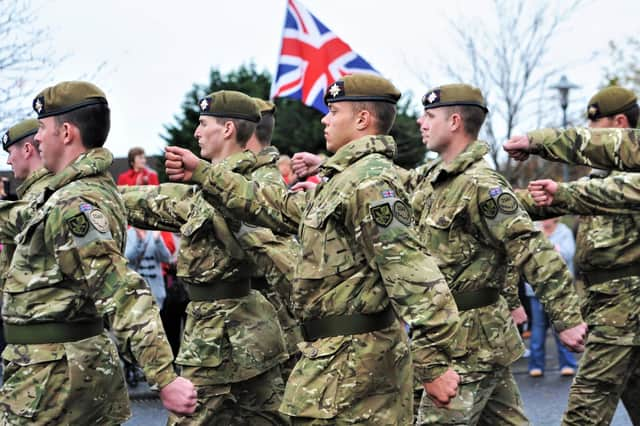New QUB report calls for more support for Armed Forces families


Following the largest study involving the families of UK veterans, carried out by Queen’s University Belfast and King’s College London, the report recommends that veterans’ families need to be “consistently identified, recognised, and supported".
The negative impacts on families include frequently having to relocate, and separation from other family members.
The work was funded by the Forces in Mind Trust.
Advertisement
Hide AdAdvertisement
Hide AdWhile the majority of veteran families who participated in this study reported positive health and wellbeing outcomes in general, the report has identified that some families would benefit from additional support – including the families of those former service personnel who have been rapidly discharged from service for medical or disciplinary reasons.
The study revealed that these families were more often negatively affected during their transition from military life, mainly due to the lack of time to prepare for civilian life.
A minority of families of ex-service personnel also reported experiencing financial worries during the transition.
The key findings from the study’s Northern Ireland based participants were:
- Loneliness was high across participants from all nations but the highest rates were in NI veterans.
- Wellbeing scores for veterans were high across all nations, but the lowest of these scores were from those surveyed in Wales and NI, compared to veterans surveyed in England.
- For adult children in NI, their current experiences of anxiety were linked to concerns about their parents’ safety, as well as own experiences, during the Troubles. The impact of the Troubles on the children of serving parents in NI was quite profound – it includes security concerns and anxiety over their parents' safety.
- In exploring difficulties in civilian life after transition from the military, partners of NI veterans experienced increased difficulties with mental health, financial issues, family issues, and feelings of isolation.
To report’s recommendations include:
Advertisement
Hide AdAdvertisement
Hide Ad- Consistent definitions of family members within and across public services including the NHS.
- Development of alternative ways of identifying and connecting families into services.
- Better signposting and clearer public information for how families can access support.
Chérie Armour, Professor of Psychological Trauma at QUB, said: “Along with important findings on health… we have made key recommendations for research, policy, and practice. These include greater identification of veteran families where possible, and greater specificity in policies relating to the wellbeing of veteran families, which focus on a range of issues including improving financial literacy and… support services”.